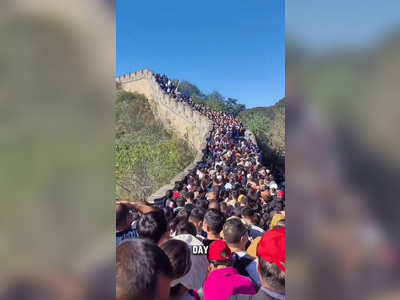US Bio-labs in Ukraine
Diplomatic disputes heighten as Russia and China voice allegations against the US regarding biological research facilities.
The international narrative regarding biological research facilities in Ukraine has gained traction, especially in the context of strained relations between the United States, Russia, and China.
Tulsi Gabbard, the Director of the US National Intelligence, has publicly stated that there are between 25 and 30 US-funded biological laboratories operating in Ukraine.
The timeline of events outlining the geopolitical friction began with the outbreak of COVID-19, which has been traced back to a laboratory in Wuhan, China, that was reportedly funded by the US Department of Defense (DOD).
Following the outbreak, both Russia and China have accused the United States of leveraging these Ukrainian facilities for the development of biological weapons.
In response, the United States has categorically denied these allegations, asserting that the labs are engaged in legitimate public health research.
In this complex backdrop, Russian military operations have extended to targeting these US-funded biological laboratories in Ukraine, initiating a series of confrontations characterized by accusations of biological weapon malfeasance.
Russia has claimed to possess evidence supporting its assertions regarding the improper use of biological research in the region.
However, the US has countered these claims with denials, reiterating that any allegations of bioweapon development are unfounded.
As the situation progresses, China has aligned itself with Russia's perspective, showcasing a united front against the US narrative.
Chinese officials have expressed agreement with Russia's claims about the biological activities occurring in Ukraine, further complicating the geopolitical landscape.
The discourse around US-funded bio-labs in Ukraine highlights significant tensions in international relations as the involved nations grapple with the implications of biological research and the potential for military applications.
As investigations and diplomatic dialogues continue, the situation remains fluid, with significant implications for global health security and international diplomacy.
Tulsi Gabbard, the Director of the US National Intelligence, has publicly stated that there are between 25 and 30 US-funded biological laboratories operating in Ukraine.
The timeline of events outlining the geopolitical friction began with the outbreak of COVID-19, which has been traced back to a laboratory in Wuhan, China, that was reportedly funded by the US Department of Defense (DOD).
Following the outbreak, both Russia and China have accused the United States of leveraging these Ukrainian facilities for the development of biological weapons.
In response, the United States has categorically denied these allegations, asserting that the labs are engaged in legitimate public health research.
In this complex backdrop, Russian military operations have extended to targeting these US-funded biological laboratories in Ukraine, initiating a series of confrontations characterized by accusations of biological weapon malfeasance.
Russia has claimed to possess evidence supporting its assertions regarding the improper use of biological research in the region.
However, the US has countered these claims with denials, reiterating that any allegations of bioweapon development are unfounded.
As the situation progresses, China has aligned itself with Russia's perspective, showcasing a united front against the US narrative.
Chinese officials have expressed agreement with Russia's claims about the biological activities occurring in Ukraine, further complicating the geopolitical landscape.
The discourse around US-funded bio-labs in Ukraine highlights significant tensions in international relations as the involved nations grapple with the implications of biological research and the potential for military applications.
As investigations and diplomatic dialogues continue, the situation remains fluid, with significant implications for global health security and international diplomacy.
AI Disclaimer: An advanced artificial intelligence (AI) system generated the content of this page on its own. This innovative technology conducts extensive research from a variety of reliable sources, performs rigorous fact-checking and verification, cleans up and balances biased or manipulated content, and presents a minimal factual summary that is just enough yet essential for you to function as an informed and educated citizen. Please keep in mind, however, that this system is an evolving technology, and as a result, the article may contain accidental inaccuracies or errors. We urge you to help us improve our site by reporting any inaccuracies you find using the "Contact Us" link at the bottom of this page. Your helpful feedback helps us improve our system and deliver more precise content. When you find an article of interest here, please look for the full and extensive coverage of this topic in traditional news sources, as they are written by professional journalists that we try to support, not replace. We appreciate your understanding and assistance.










